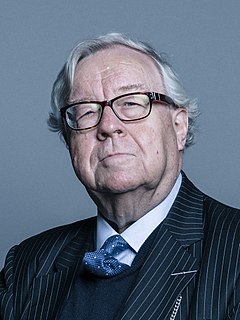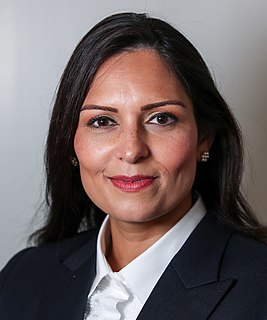
Crispin Jeremy Rupert Blunt is a British Conservative Party politician. He is the Member of Parliament (MP) for the Reigate constituency in Surrey, and from May 2010 to September 2012 he was the Parliamentary Under-Secretary of State for Prisons and Youth Justice within the Ministry of Justice.

The Maastricht Rebels were British members of Parliament (MPs) belonging to the then governing Conservative Party who refused to support the government of Prime Minister John Major in a series of votes in the House of Commons on the issue of the implementation of the Maastricht Treaty in British law.
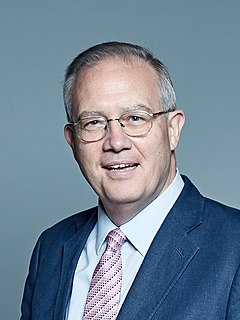
John Charles Baron is a British Conservative politician and the Member of Parliament for Basildon and Billericay since 2001. Baron has in relative terms frequently rebelled against his party, specifically in his calling for a sooner referendum on the European Union and in opposing military intervention in Iraq, Libya and Syria. He is a strong critic of the European Union and he was a vocal supporter of Brexit during the 2016 EU referendum. He is now a supporter of the pro-Brexit Leave Means Leave campaign.

Sir Alan James Carter Duncan is a British Conservative Party politician. He is the Member of Parliament (MP) for Rutland and Melton and was the Minister of State for Europe and the Americas until his resignation on 22 July 2019.

John Simon Bercow is a British politician who has been the Speaker of the House of Commons since June 2009. He concurrently serves as the Member of Parliament for Buckingham. Prior to his election to Speaker, he was a member of the Conservative Party. A former right-winger, he changed his views after becoming an MP and at one time was rumoured to be likely to defect to the Labour Party. Bercow's election to the Speaker's chair depended heavily on the backing of other parties, and was deeply unpopular with many of his former Conservative Party colleagues.
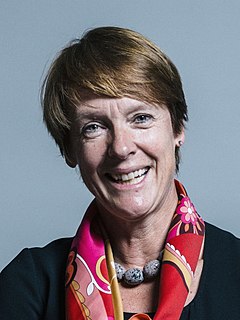
Dame Caroline Alice Spelman is a British Conservative Party politician who has served as the Member of Parliament (MP) for Meriden in the West Midlands since 1997. From May 2010 to September 2012 she was the Secretary of State for Environment, Food and Rural Affairs in David Cameron's coalition cabinet, and was sworn as a Privy Counsellor on 13 May 2010.
David Laurie Ruffley is a Conservative Party politician in the United Kingdom. He was the Member of Parliament (MP) for the constituency of Bury St Edmunds in Suffolk, which encompasses Bury St Edmunds and Stowmarket, having first taken his seat at the 1997 general election.
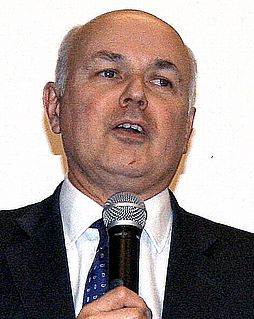
Local elections took place in various parts of the United Kingdom on 1 May 2003, the same day as the Scottish Parliamentary and the Welsh Assembly elections. There were local elections for all councils in Scotland and in most of England. There were no elections in Wales, Northern Ireland or London.
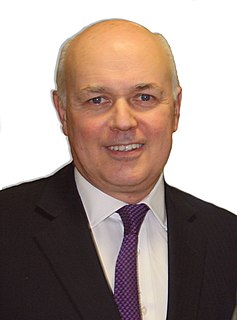
The 2001 Conservative Party leadership election was held after the British Conservative Party failed to make inroads into the Labour government's lead in the 2001 general election. Party leader William Hague resigned, and a leadership contest was called under new rules Hague had introduced. Five candidates stepped forward: Michael Ancram, David Davis, Kenneth Clarke, Iain Duncan Smith and Michael Portillo.

The 2005 United Kingdom general election was held on Thursday 5 May 2005, to elect 646 members to the House of Commons. The Labour Party led by Tony Blair won its third consecutive victory, with Blair becoming the only Labour leader beside Harold Wilson to form three majority governments. However, its majority now stood at 66 seats compared to the 160-seat majority it had previously held. As of 2019, it remains the last general election victory for the Labour Party.
In the parliamentary politics of the United Kingdom and Canada, one member, one vote (OMOV) is a method of selecting party leaders by a direct vote of the members of a political party. Traditionally, these objectives have been accomplished either by a party convention, a vote of members of parliament, or some form of electoral college. OMOV backers claim that OMOV enhances the practice of democracy, because ordinary citizens will be able to participate. Detractors counter that allowing those unversed in the issues to help make decisions makes for bad governance.

The 2005 Conservative Party leadership election was called by party leader Michael Howard on 6 May 2005, when he announced that he would be stepping down as Leader of the Conservative Party in the near future. However, he stated that he would not depart until a review of the rules for the leadership election had been conducted, given the high level of dissatisfaction with the current system. Ultimately, no changes were made and the election proceeded with the existing rules, which were introduced in 1998.
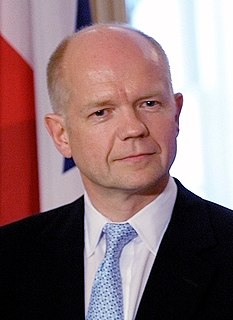
The 1997 Conservative Party leadership election was triggered in the British Conservative Party when John Major resigned on 2 May 1997, following his party's landslide defeat at the 1997 general election, which ended 18 years of Conservative Government of the United Kingdom. Major had been Conservative leader and Prime Minister since November 1990.
The next general election in the United Kingdom is scheduled to be held on 5 May 2022 under the Fixed-term Parliaments Act 2011, five years after the previous general election in 2017. The election may be held at an earlier date in the event of an early election motion being passed by a super-majority of two-thirds in the House of Commons, or a vote of no confidence in the government which is not followed by a vote of confidence within 14 days.

The 2016 Conservative Party leadership election occurred as a result of Prime Minister David Cameron's resignation as party leader. He had resigned following the national referendum to leave the European Union. Cameron, who supported Britain's continued membership of the EU, announced his resignation on 24 June, saying that he would step down by October. Theresa May won the contest on 11 July 2016, after the withdrawal of Andrea Leadsom left her as the sole candidate.

The 2019 Conservative Party leadership election was triggered when Theresa May announced on 24 May 2019 that she would resign as leader of the Conservative Party on 7 June, and as Prime Minister once a successor had been elected. Nominations were open on 10 June, and 10 candidates were nominated. The first ballot of MPs took place on 13 June, with exhaustive ballots of MPs also taking place on 18, 19 and 20 June, reducing the candidates to two. The general membership of the party elected the leader by postal ballot with the result announced on 23 July, with Boris Johnson being elected as leader with almost twice as many votes as his opponent Jeremy Hunt.



